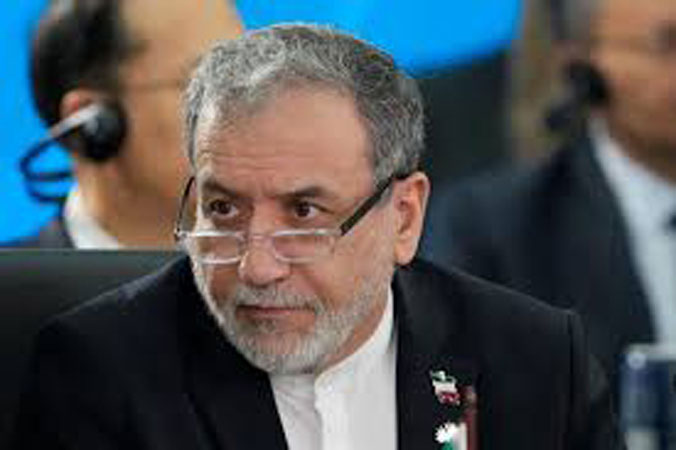Pakistan, July 23 — Iran’s foreign minister stated that the country has no intention of discontinuing its nuclear program, including uranium enrichment, even after suffering “serious” damage from US attacks on its facilities, as talks with European nations resume.
Iran is set to meet with Britain, France, and Germany in Istanbul on Friday to talk about its nuclear program, as Tehran claims that European nations have undermined a significant 2015 nuclear agreement.
The gathering will mark the initial one since Iran’s 12-day conflict with Israel earlier this month, when the United States conducted attacks on Tehran’s nuclear sites.
For the time being, enrichment “has been halted because, indeed, the damages are significant and severe,” Iranian Foreign Minister Abbas Araghchi stated during an interview with Fox News’ “Special Report with Bret Baier” on Monday.
But clearly, we can’t abandon enhancement since it’s a success of our own scientists,” he added, referring to it as a source of “national pride.
U.S. President Donald Trump addressed remarks on his platform Truth Social, stating that Washington would conduct strikes once more “if required.”
The 2015 deal, negotiated between Iran and the permanent members of the UN Security Council—Britain, China, France, Russia, and the United States—alongside Germany, placed restrictions on Iran’s nuclear activities in return for the lifting of sanctions.
However, it fell apart in 2018 when the United States, during Trump’s initial presidency, independently exited and re-imposed extensive penalties.
Although Europe promised ongoing assistance, a system designed to counteract US penalties never truly came into effect, prompting numerous Western companies to leave Iran and worsening its economic situation.
“Iran blames the European parties for failing to implement the agreement,” stated foreign ministry spokesperson Esmaeil Baqaei before Friday’s discussions in Istanbul regarding the deal’s future.
Iran will also organize a trilateral meeting on Tuesday with officials from China and Russia to address the nuclear matter and possible penalties.
The Chinese Ministry of Foreign Affairs stated that Beijing would “remain actively involved in encouraging the relevant parties to resume discussions and negotiations, aiming to achieve a resolution that addresses the valid concerns of all involved.”
Over the past few weeks, the three European nations have warned of reinstating global sanctions against Tehran, alleging that it has violated its nuclear agreements.
Germany mentioned that the Istanbul discussions would take place at the expert level, with the European trio, or E3, striving diligently to achieve a lasting and verifiable diplomatic resolution.
“If no resolution is achieved by the end of August, the snapback mechanism remains an option for the E3,” stated the foreign ministry spokesperson, Martin Giese.
A provision in the 2015 deal enables the reactivation of UN sanctions against Iran via a “snapback” process if there is a breach of terms.
However, the contract is set to expire in October, creating a short timeframe.
The International Atomic Energy Agency states that Iran is the sole non-nuclear state currently enriching uranium to 60 percent — significantly higher than the 3.67 percent limit established by the 2015 agreement.
That represents a minor step towards the 90 percent enrichment needed for a nuclear weapon.
Referring to the snapback clause as “meaningless, unjustifiable, and immoral,” Baqaei stated at a press conference, contending that Iran only started moving away from the agreement due to Western non-compliance.
He stated, ‘Iran’s decrease in its obligations was conducted following the terms specified in the agreement.’
Western nations, spearheaded by the United States and supported by Israel, have consistently alleged that Tehran is secretly pursuing nuclear arms.







